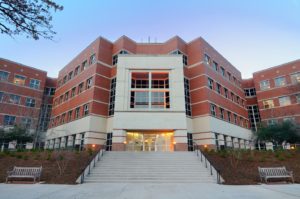The life sciences industry consists of various types of companies that often promote health and wellness. This list includes: biotech companies, pharmaceutical companies, medical device manufacturers, and genomics companies. Burgeoning start-up companies often do not have the capital necessary to purchase commercial real estate. Therefore, the life sciences industry and property leasing often go hand in hand together. However, the requirements for life sciences companies are often much more complex and different from those of the typical commercial real estate tenant. Real estate holders whose primarily focus is on office or warehouse space may be ill-equipped to anticipate the diverse needs of these life sciences companies. This deficit is especially pertinent when considering the rapid pace of the time-to-market and investor funding on which many of these companies rely. Harrison Law, PLLC understands the complexities involved in leasing property to life sciences companies and can help draft, review, and negotiate leases between commercial real estate holders and life sciences companies. If you are looking for suitable properties and terms for your transaction, consider contacting Harrison Law, PLLC at (480) 320-2310 today.
Leasing Models for Life Sciences Companies
One of the best ways to understand property leasing for the life sciences industry is familiarize yourself with the various leasing models these companies use. The real estate needs of these companies are often complex. They are also fluid, with early-stage companies needing smaller space to conserve resources and later stage companies requiring lab space, manufacturing space, and warehouse space.
Some of the common leasing models these companies use include:
Flexible License Lease
This leasing model is often used for early-stage life sciences companies and pre-series A funding companies. It provides the space necessary for these companies, often on a short term. Leases may be month-to-month and require little notice from either party to terminate the contract.
This type of lease may provide for a single lab bench or for a more full-service offering. This type of space is similar to more traditional coworking spaces which allow people from different industries to interact. This is one of the attractions to early-stage and pre-Series A companies because they may be able to meet leaders of other companies who could collaborate on the project or even invest. Additionally, some owners of these types of spaces integrate education and mentoring opportunities into their space.
Shorter-Term Lease Model
Another common leasing model for life sciences companies is a shorter-term lease model that falls somewhere between the other two lease models described above. This option is popular among Series A companies who may like to invest in a property that provides capital-services, such as:
- Laboratory support areas
- Conference rooms
- Specialized equipment
- More efficient water purification and HVAC systems
- Glassware and other items needed by biotech and other life sciences companies
These leases tend to be for shorter terms, such as two to three years. The properties are often provided on an as-is basis without the substantial capital that may be expended on buildings that provide for longer terms for life sciences companies. Landlords may have greater control over the use and adaptation of the space.
Longer-Term Lease Model
On the opposite end of the spectrum is the longer-term lease. There may be no landlord-provided services other than a pH neutralization system. Landlords are generally only responsible for the common areas of these properties and offer longer term leases, usually from seven to ten years. The tenant often expends substantial money to fit the space for its unique needs.
This model is more popular among Series B and C companies. These companies may invest in these leases when they are not quite ready to invest in their own space but have more specific needs than other leasing models provide for.
Understanding the Life Cycle of Life Sciences Companies

Selecting the right type of lease model largely depends on the stage of a company. Their needs will evolve as their company grows. Some particular considerations may include:
- Lease term – Start-up companies may prefer shorter leases while more established companies may prefer longer lease terms.
- Renewals – Life sciences companies may appreciate having the option to renew their lease for an additional term without having to renegotiate the entire lease.
- Capital expenditures – Start-up companies may not have the capital to invest in capital-intensive expenditures. Instead, they will likely prefer to lease ready-to-use laboratory and office space. Laboratory support and business support services may also be preferred. In contrast, companies that are further along in their development may prefer to invest in designs that will help them have greater control over the property and meet specific standards, such as OSHA’s laboratory guidelines.
- Services – Companies subject to shorter terms may want additional services at their disposal. Additionally, specific standards regarding utilities, air quality, and water purity may also be expected.
- Access – Due to potential hazardous or biological materials being in use, the landlord and other visitors may not be able to have typical access to the premises.
- Confidentiality – Life sciences companies are constantly innovating, so they might insist on confidentiality regarding their location and use of the space.
How an Experienced Business Lawyer Can Help with Life Sciences Industry Property Leasing
Harrison Law, PLLC has extensive experience helping clients position their assets to secure life sciences tenants, as well as assisting life sciences tenants obtain favorable leases that are tailored to their unique needs. We can help you structure your lease so that it provides clear language that protects your interests and anticipates your future needs as you secure funding and grow your business.
We will listen to your vision, wants, and needs to provide customized solutions. We routinely work with other professionals to help you create the space you need, including designers and engineers. We can also help you set realistic expectations regarding budgets and occupancy.
Contact Us for Help with Property Leasing for the Life Sciences Industry
If you would like assistance with your life sciences industry property leasing needs, Harrison Law, PLLC is here to help. We can draft, review, or negotiate leases that protect our clients’ interests and anticipate their needs in the future. For help with these needs, consider contacting us today to learn more.
© 2023 Matthew W. Harrison and Harrison Law, PLLC All Rights Reserved
This website and article have been prepared by Harrison Law, PLLC for informational purposes only and does not, and is not intended to, constitute legal or financial advice. The information is not provided in the course of an attorney-client relationship and is not intended to substitute for legal advice from an attorney licensed in your jurisdiction.






